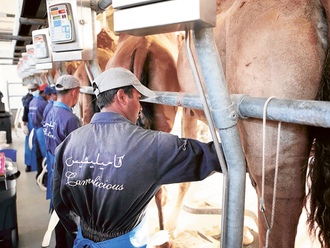There is a lot of confusion in the minds of some children. One of the prime reasons for this I have noticed while coaching parents and children is that in many families each parent has his/her own style of parenting.
It’s understandable for a husband and wife to have unique styles of parenting given that they have been raised in different households with distinctive experiences, beliefs and values. But the problem arises when we add the children to this family setup — where one parentis, maybe, particular about the time spent on gadgets by the teen son versus the other — who thinks teens should be self-regulated and must live in a “free” society. No prizes for guessing whose “orders” this teen son is following.
One exasperated mother has come to me on many occasions because she finds her extremely bright son’s future crumbling. Whereas, her husband is asking her to “sort” herself out and let the child breathe. The father comes from a family where he was so disciplined, even as to how he should take his next breath. So he has decided to take the free world approach to his parenting style after his suffocating childhood.
For me what’s concerning is that the discord between the couple is allowing the children to live without defined boundaries. One of the prime requisites in parenting is to create boundaries for children to follow and evolve into mature adults. These boundaries help children know what is expected of them and what they need to do in a particular scenario.
One basic example could be coming home late from a friend’s party. Parents need to communicate whether they expect the child to come home at 8pm, 10pm or midnight. In this manner both parties know what is expected on that occasion.
Setting boundaries and expectations for children assists in building life skills that include patience, problem solving, resourcefulness, responsibility and self-discipline. Children actually thrive from a sense of security within healthy limits, just the way we live in a civilised society where we follow certain boundaries to ensure the safety of ourselves and those around us.
Boundaries also help children learn to cope with disappointment, which in turn can help children to develop empathy — perhaps for others who face discomfort and disappointment or are less fortunate. Understanding the meaning of “limits” allows kids to be more connected to the real world.
If you and your spouse have extreme parenting styles then it is important to have a mutual discussion outlining the broad areas of parenting. Sometimes you will need to agree on disagreeing and allow one or the other to take the lead. It is extremely important for children to feel that they are being parented by their “parents” and not two individuals with completely opposing view points.
Our Back on Track online programme deals with just this.
This is an interactive column on parenting skills and child behaviour. If you have a query, write to tabloid@gulfnews.com
— Sunaina Vohra is a certified Youth and Family Life Coach at Athena Life Coaching in Dubai. For more information log on to www.athenalifecoaching.com or call (+971) 56-1399033.









